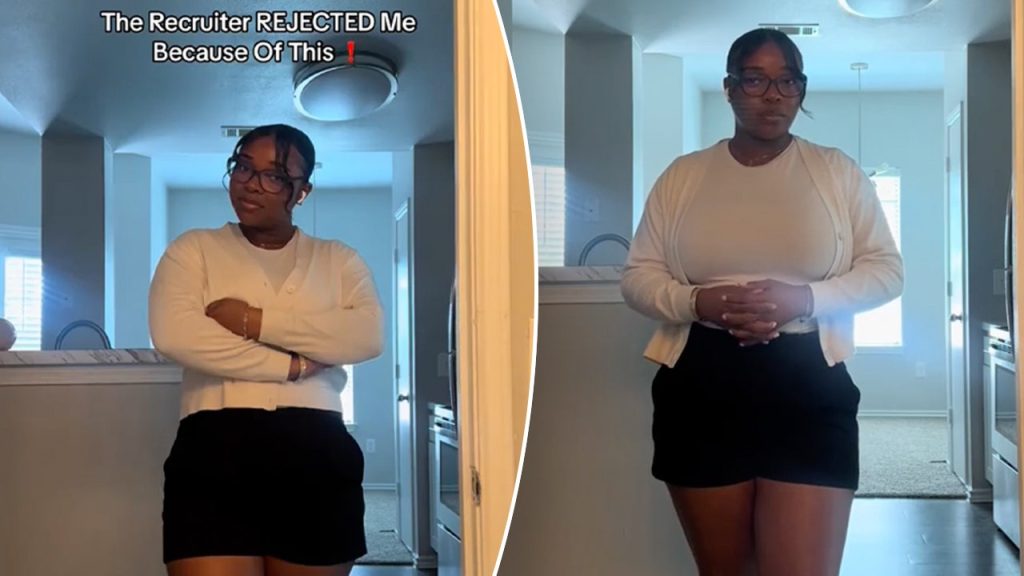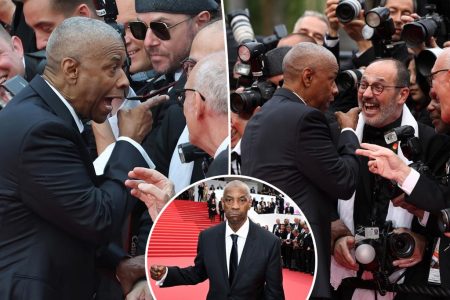A woman named Tyreshia Morgan from Texas wore a controversial outfit to a job interview, consisting of black tailored shorts, a white t-shirt, and a white sweater. She shared a video on TikTok of herself in this outfit, which led to her getting turned away by the recruiter upon arrival. The recruiter asked Morgan to change her clothes and come back for the interview, but she refused, arguing that she looked neat and professional. The video went viral, with many social media users defending Morgan’s choice of outfit, while others criticized it as unprofessional for an interview setting.
Various social media users came to Morgan’s defense, stating that the outfit was appropriate for warm weather and that dress codes should be updated to reflect modern times. However, many others, including human resources professionals, supported the recruiter’s decision to ask Morgan to change her clothes. They emphasized the importance of following traditional business attire for interviews and the need for career preparedness to understand the expectations of a job interview environment. Some suggested that school and colleges should offer more career prep classes to prepare students for such situations.
Career coach Chelsea Stokes emphasized the importance of professionalism and making a good first impression in job interviews, especially through clothing choices. She advised clients to err on the side of caution with interview attire, as it is better to dress more professionally to secure the job. Stokes mentioned that once hired, employees can adjust their attire based on the company’s culture. However, during the interview process, it is crucial to put one’s best foot forward and not take unnecessary risks with clothing choices. She discussed the differing mindsets of Gen Z and Gen X regarding business attire and the need to consider others’ perceptions when choosing outfits for the workplace.
Stokes highlighted that wearing shorts to work may be more acceptable to Gen Z but not as much for Gen X. She advised against insisting on one’s own way regarding attire at work, as it is essential to respect different people’s opinions and adapt to the workplace environment. Stokes stressed that in an interview, individuals have not yet earned the right to be comfortable and should prioritize presenting themselves professionally. While being comfortable is important, she recommended sticking to traditional business attire for interviews to make a positive impression on the hiring team. Stokes noted that after proving one’s capabilities on the job, there may be more leeway for attire choices based on the company’s culture and individual role.
The viral video of Morgan’s outfit sparked a debate on social media regarding appropriate interview attire, with some defending her choice and others supporting the recruiter’s decision to ask her to change clothes. Human resources professionals and career coaches emphasized the importance of professionalism and making a good first impression in job interviews through clothing choices. Stokes underscored the need to follow traditional business attire norms during interviews and consider different generations’ perspectives on workplace attire. She advised against insisting on personal preferences at work and stressed the importance of respecting varying opinions and adapting to the workplace environment. Overall, the incident highlighted the significance of career preparedness and understanding the expectations of a job interview setting for successful outcomes.














